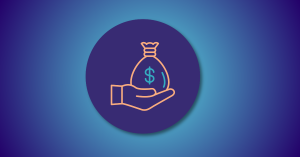When JP Morgan acquired popular student loan startup Frank in September 2021 for a whooping $175M, the bank was convinced that it was making an investment that is going to help millions of students and their families navigate their challenging financial journeys.
A year and half later though, the US giant is shutting down the startup after alleging that Frank’s founder Charlie Javice created nearly four million fake customer accounts and thus fooled JP Morgan.
According to JP Morgan, Javice used a data scientist to invent millions of fake accounts and presented the database while going through the due diligence process. Apparently, at the time this was enough for JP Morgan to conclude the process and go through with the deal. In reality though, Frank had less than 300 thousand customers, which was revealed later on by JPMorgan. However, by that time, the damage was already done.
What this story teaches us is the importance of a good and thorough due diligence process. The case with JP Morgan and Frank illustrates that if it isn’t done right, then investment due diligence can prove to be very costly for both investors and startups.
The past few years and developments such as those with touted aspiring startups and companies such as Theranos, FTX and WeWork among others have also illustrated the need for investors to recognize the warning signs and potential risks and be much more cautious when it comes to their investment due diligence.
Investment due diligence: be cautious right from the start
For Bulgaria-based Vitosha Venture Partners, the due diligence procedure begins informally from their very first meetings with startups.
“Starting from the product or service and their uniqueness, the size and dynamics of its target market, the strategy to reach its market and compete in it, the people behind the company, the traction they’ve achieved so far, and the route to exit of the company. Once we’ve made a positive investment decision, extended and signed a term sheet, we continue with the formal due diligence. Its main goal is to validate and confirm what we’ve uncovered during our decision making process,” Kamen Bankovski, Principal at Vitosha Venture Partners, tells The Recursive.
In the long run, investment due diligence helps financiers negotiate better terms and valuations with the startup and also to have a better understanding of the company’s growth potential and the exit strategy.
However, while it is important for investors to be cautious, it is also of similar importance for founders and startups themselves to completely understand the investment procedure and every agreement they sign.
“Similar to how investors must comprehend the importance of due diligence, entrepreneurs must be fully aware of the investor’s terms and conditions before signing a term sheet or investment agreement. The importance of the aforementioned has recently been demonstrated by a few much-publicized debacles like FTX and Theranos,” Bankovski adds.
Research, research, and more research
Researching the management team, reviewing financials, analyzing the market, competitions and industry trends are just some of the steps that investors can take when assessing a startup and its potential.
“The process has three main channels of assessment – technical, financial, and legal aspects, and aims to ensure we have sufficient knowledge of the company’s intellectual property and assets, the quality and correctness of its financial accounting and KPIs, payment cycles, overall cash flow, shareholder and investor agreements, contracts, and any other important information that might be relevant to us,” the Bulgarian VC noted on the process behind investment due diligence.
While what a founder typically focuses on when fundraising is people, product, market, and supporting the business plan with financial projections, one should never let aside the due diligence process, Dora Trachana from Athens-based VC Uni.Fund explains.
“The VC due diligence looks like a ‘limited’ audit in many aspects such as product, culture, IP, customer contracts, competition, legal, financials, tax or even ESG and other supporting sectors. What we need to check is that everything presented on the pitch deck can be matched with the data. Our experience so far shows that founders do not always pay much attention to significant parameters, such as the IP or the team issues that may arise while negotiating an investment deal,” Trachana tells The Recursive.
Trust goes both ways
While investment due diligence helps financiers identify and mitigate risk, make informed decisions, and protect their money, for startups this is also an opportunity to showcase the potential of their business and demonstrate that they have a solid plan in place for growth.
“What we would advise is to initiate the in-depth process and internal discussions before getting out for money, creating a structured data room that will assist the team in gathering the right information and get the right decisions and work like the investment and the official due diligence is already happening. This process will mature the team and make them stand well-prepared in front of the investors,” Trachana points out.
Additionally, due diligence also helps startups to have a better understanding of the investor and their expectations.
“It is important for business founders to understand that due diligence is essentially our “homework” that must be done on a potential deal in order to make an informed decision. Just as they investigate investors before reaching out to them, both parties must be fully informed of what they are getting themselves into.” the Vitosha Venture Partners team emphasizes.








